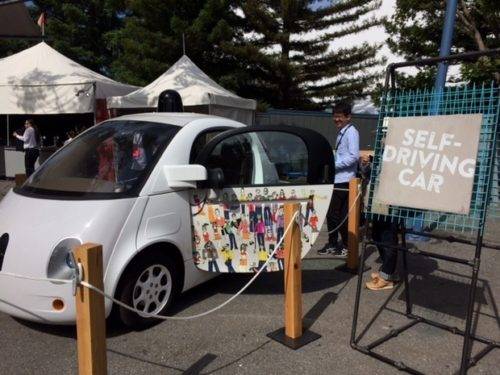As the world’s biggest players in IT and the car makers dive frantically into self-driving cars, a new report estimates this market will grow to an astonishing $2.6 trillion annually within 15 years.
The site Gas2.org reports the startling growth prospects for self-driving cars revealed in a new Mogran Stanley report led by Katy Huberty.
Her research team estimates that the global shared mobility market will reach $$2.6 trillion annually by 2030.
Much of what’s superficially driving this market is disruptive technology and business models of companies like Uber and Lyft. These companies have muscled into the traditional taxi market in big cities worldwide and shown a thriving willingness for tech savvy citizens to pay for new types of services.
More importantly, Uber’s disruptive approach has broken open the car-buying paradigm in big cities, and exposed an increasing desire by urban dwellers to reduce vehicle ownership or skip it all together. And as individual car ownership is expected to wane, this will be countered by a corresponding rise in vehicles sold to shared mobility networks.
Demand seems strong – but trillions?
Earlier this spring, Uber’s CEO boldly pronounced that if Tesla developed an autonomous car by 2020 Uber would by the entire manufacturing run. Following this Tesla guru Elon Musk coyly hinted that electric car company may be poised to enter into the race to develop self-driving cars.
Another new contender in the car market is Apple, which invested $1 billion in Didi Chuxing, a Chinese ride hailing service. Not only will that deal allow Apple to integrate its existing technology in a new market, but it will provide vital data on consumer behavior in China, a market that analysts predict will be one of the most open to switching to autonomous vehicles.
This seismic market shift has traditional automakers scrambling to catch up to the drastically changing technology and consumer landscape.
Volkswagen recently announced that it would focus more of its resources on self-driving and electric cars, while pumping $300 million into Israeli firm Gett.
Not to be outdone, General Motors recently acquired Cruise Automation for $1 billion and invested an additional $500 million into Lyft.
Add to this Chrysler teaming up with Google self-driving minivans and BMW’s refocusing its “i” division toward developing autonomous car technology.
And with such huge players from both the IT world and the automaking universe gambling big, it’s clear there will be massive winners and losers as the technology shakes out. So strap in, it’s going to be one wild ride.


















